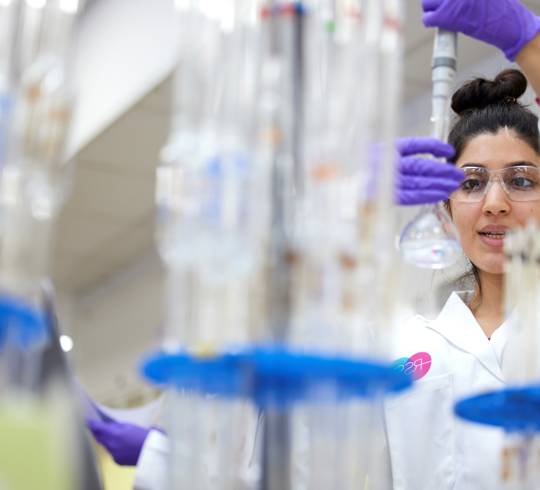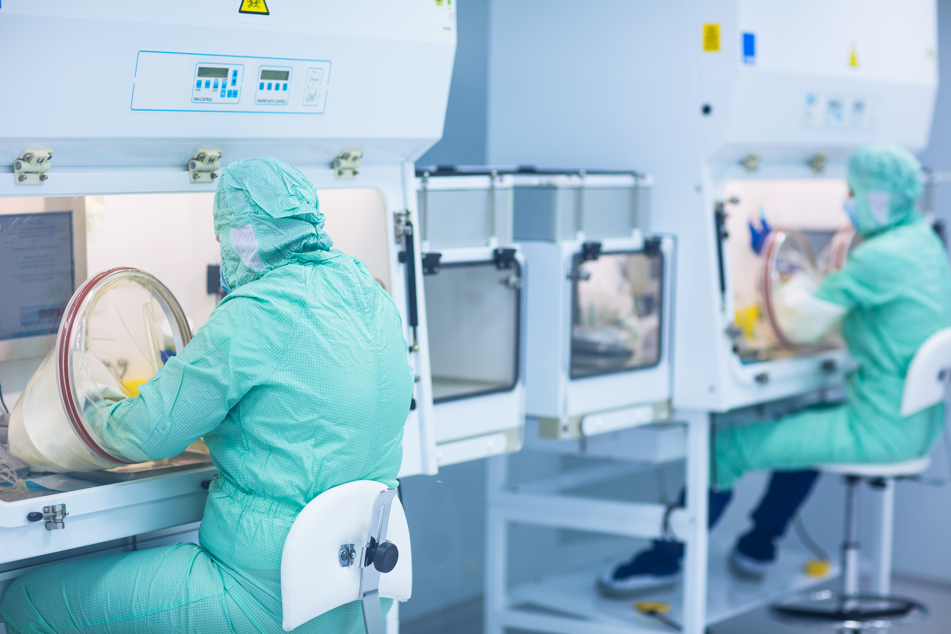In order to progress to clinical trials, the client needed to characterise the materials used in their therapy and prepare a dossier submission. The client did not have the expertise or facilities to do this in-house, so reached out to RSSL. With around 20 components, including raw, contact and pathway materials, an extensive array of instrumentation was required. In addition, whilst some of these materials had existing pharmacopeia monographs, others were more complex and novel with little regulatory guidance available and required RSSL’s support to develop appropriate methods. In particular, the key materials responsible for the therapeutic efficacy posed a challenge to work with and develop methods for.


RSSL drew on its expertise and well-equipped facilities to develop appropriate methods for the client. A wide variety of analytical techniques were employed, leveraging the experience of RSSL's scientists across its microscopy, microbiological and sterility, biomolecular analysis and wet chemistry labs.
By applying their extensive knowledge of biopharmaceutical testing to uncommon materials, RSSL’s teams were able to develop methods for even the most challenging materials. This included developing identity methods for serum-free media – commonly used in cell therapy manufacture – to confirm the species of serum and serum proteins used in cell culture. In addition, RSSL developed bioassays and identity methods to assess the function of reagents designed to activate cell
With the great number and complexity of materials involved spanning microbiological, chemical and biological analyses, dedicated project management was vital to ensure a smooth process. This included careful management of the large portfolio of samples and their transport between multiple labs, managing the necessary documentation efficiently and ensuring clear communication with the client.
It was also necessary to ensure that the stringent requirements around data retention were met.
These requirements state that cell and gene therapy data must be retained and readily available for 30 years. As part of this project, RSSL further developed its electronic data storage measures to meet this requirement, enabling the client to progress to clinical trials.
Despite disruption caused by COVID-19, RSSL was able to complete method development for all materials in 8 months, resulting in 69 new methods and progressing to routine testing. With the data gathered, RSSL supported the client in their successful submission, and the therapy candidate is now in a clinical study.
The client hopes to progress to a larger study before moving to commercialisation. RSSL continues to work with the client to support their routine testing, and is now working on a new project for another therapy which the client has in development. With data storage methods aligned to the latest industry requirements, RSSL is in a strong position to support the client with the submission of their next product for clinical trials.
To download a copy of this case study click here
RSSL had the knowledge and equipment we needed and we always felt in the loop thanks to the ease of communication with the project manager. We are thrilled to now be in clinical trials and look forward to continuing to work with RSSL.